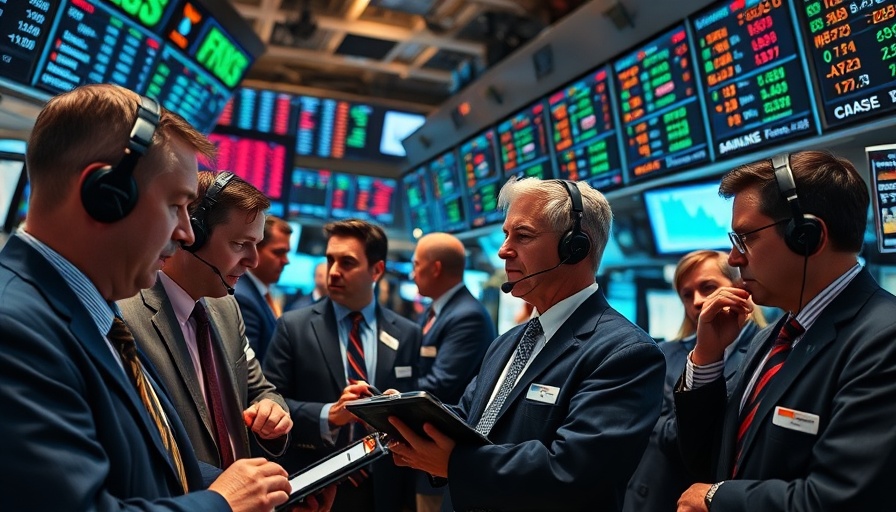
Understanding Tariff Volatility in Today's Market
As the global economy navigates a wave of uncertainties, tariff volatility emerges as a key concern for investors. Recently, former President Donald Trump reignited tensions with an announcement of upcoming tariffs on goods imported from the European Union, Mexico, Canada, Japan, and South Korea. With expected rates ranging from 25% to 35%, investors are rightfully anxious about how these changes will impact their portfolios.
Strategic Investment Moves Amid Uncertainty
UBS, a leading financial institution, has outlined several strategies for investors to mitigate the risks associated with tariff volatility. This advice is particularly important for those aged 35-67 who are focusing on preserving wealth and seeking long-term growth opportunities. Rather than making rash decisions, UBS recommends gradually phasing into equities, allowing investors to take advantage of market fluctuations.
Investing with Patience: Phasing into Equities
Investors should consider a gradual approach to stock purchases. By "phasing into equities," individuals can better capitalize on periods of market volatility and evaluate potential growth pockets. Experts believe that sectors such as technology, healthcare, and financial services may provide the best returns, along with some promising markets in Asia, including Taiwan and India. This strategy encourages an informed approach to investments rather than impulsive trading.
The Role of Gold in Your Investment Portfolio
Another valuable tip from UBS involves investing a small percentage of your portfolio in gold as a hedge against political instability and inflation. Allocating midsingle-digit percentages to gold can diversify your investment portfolio, providing a buffer during nearly unpredictable market conditions. During times of tariff instability, gold often serves as a safe haven, retaining value when other investments falter.
Long-Term Opportunities in Emerging Trends
In addition to immediate strategies, UBS emphasizes the importance of looking ahead. Trends such as artificial intelligence, energy infrastructure, and healthcare innovations are transforming entire sectors. Investing in these areas can yield substantial long-term growth, particularly as the world leans more towards technology and sustainable resources. By aligning investments with these trends, investors may harness growth potential for years to come.
The Importance of Diversifying Investments
Amidst tariff-related uncertainties, diversifying investments remains crucial. UBS highlights the "global profit pools" emerging from sectors strongly influenced by AI, such as healthcare and energy. Investors should seek to understand not only where to place their capital but also ensure a mix of investments that can withstand market swings.
The Road Ahead: Predictions and Insights for 2025
Looking towards 2025, investors must remain vigilant. While current market predictions suggest limited growth due to uncertain policies and geopolitical tensions, there still exist pockets of opportunity for those willing to act strategically. Keeping a pulse on economic developments, regulatory changes, and evolving market dynamics will be key in capitalizing on emerging opportunities.
Conclusion: Taking Action in a Volatile Market
In conclusion, navigating market volatility due to tariffs requires patience, a strategic approach, and a focus on long-term investments. By phasing into equities, hedging with gold, and identifying growth sectors, investors can fortify their portfolios against unpredictability. As markets evolve, staying informed and adaptable will be critical in safeguarding investments.
Ready to take the next step in navigating market volatility? Stay informed and look for expert insights to guide your investment strategies. Your financial future may depend on it!
 Add Row
Add Row  Add
Add 




 Add Row
Add Row  Add
Add 

Write A Comment